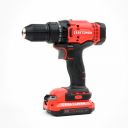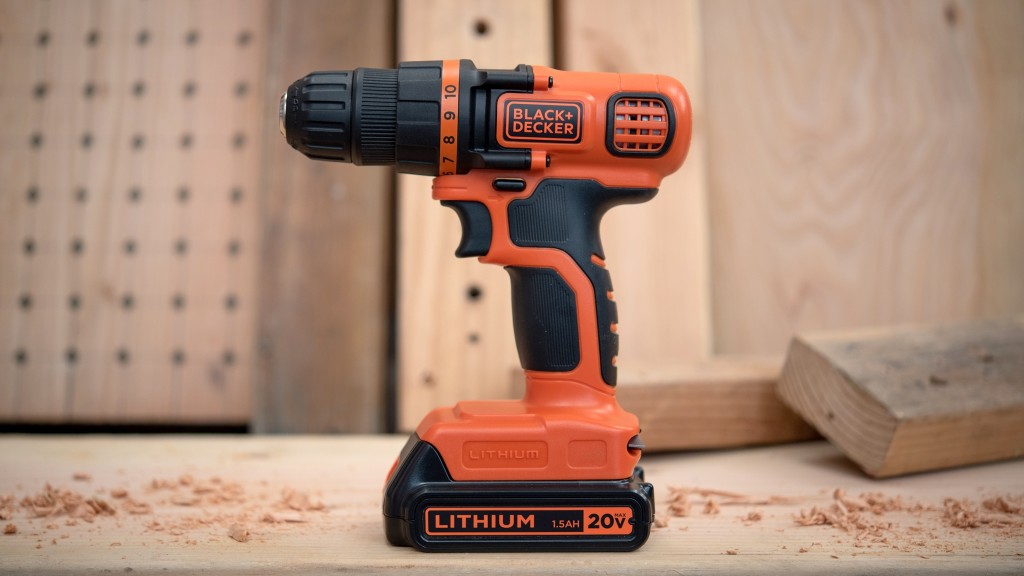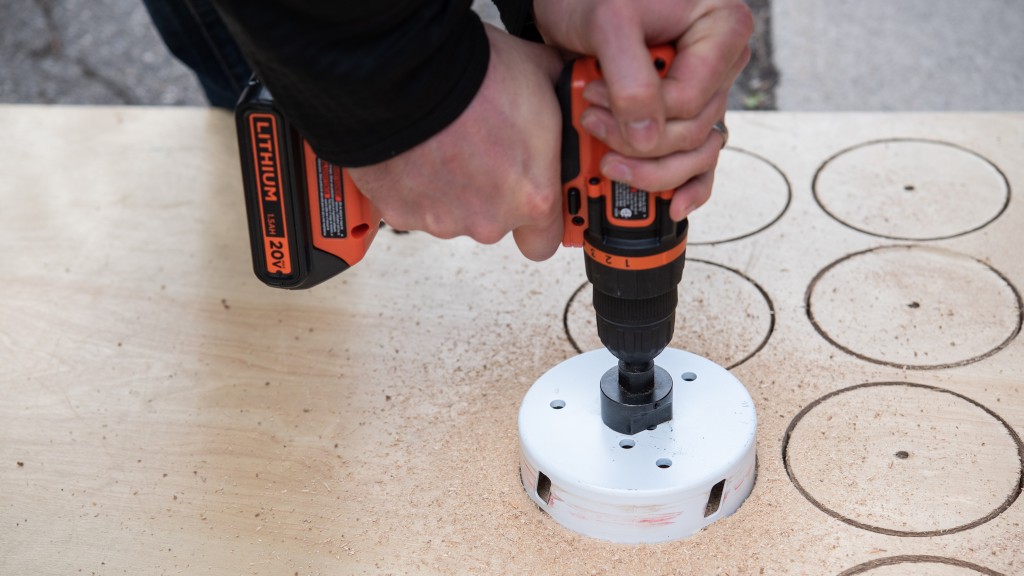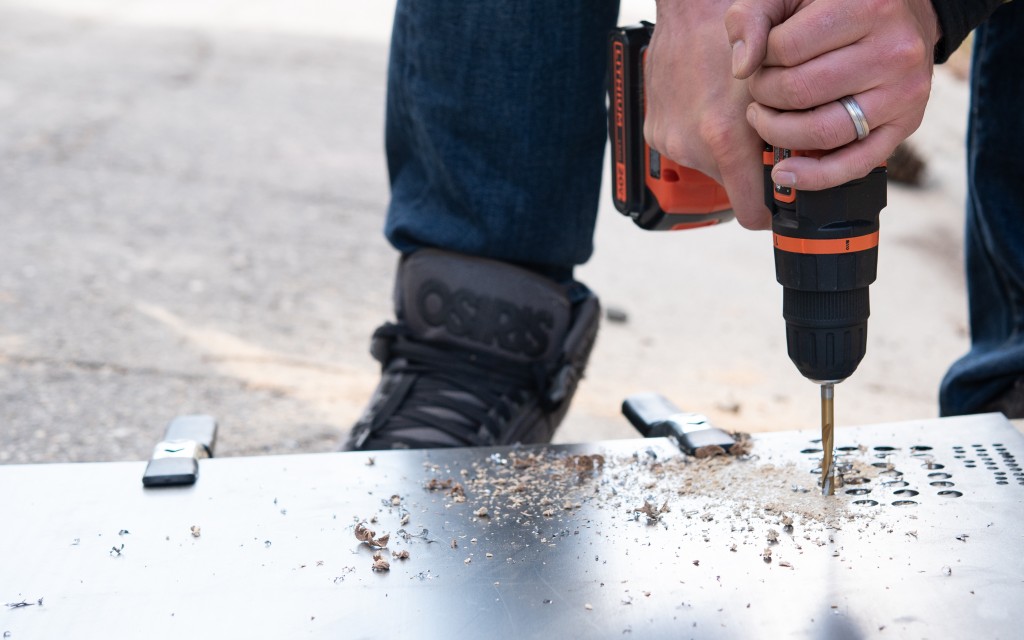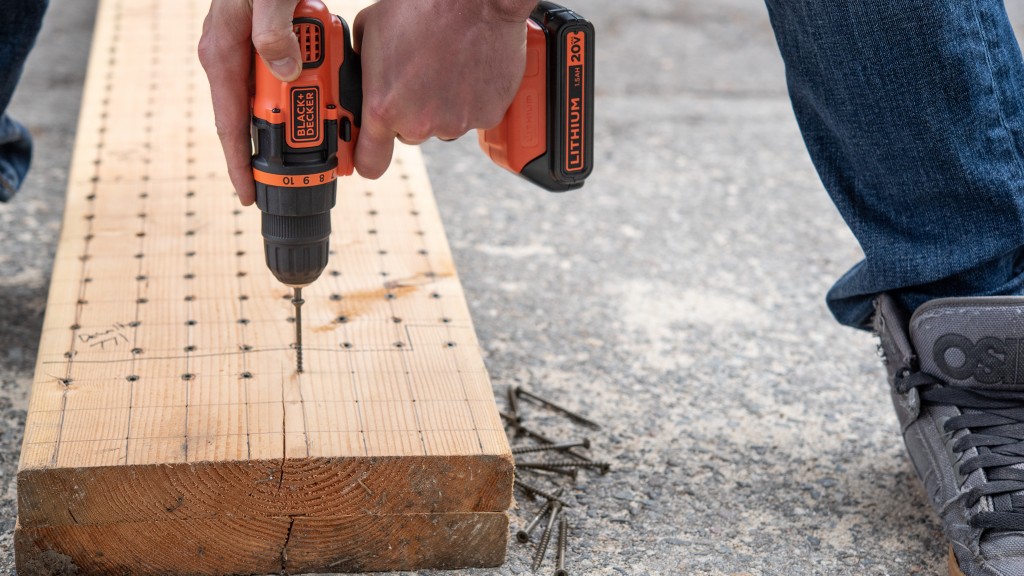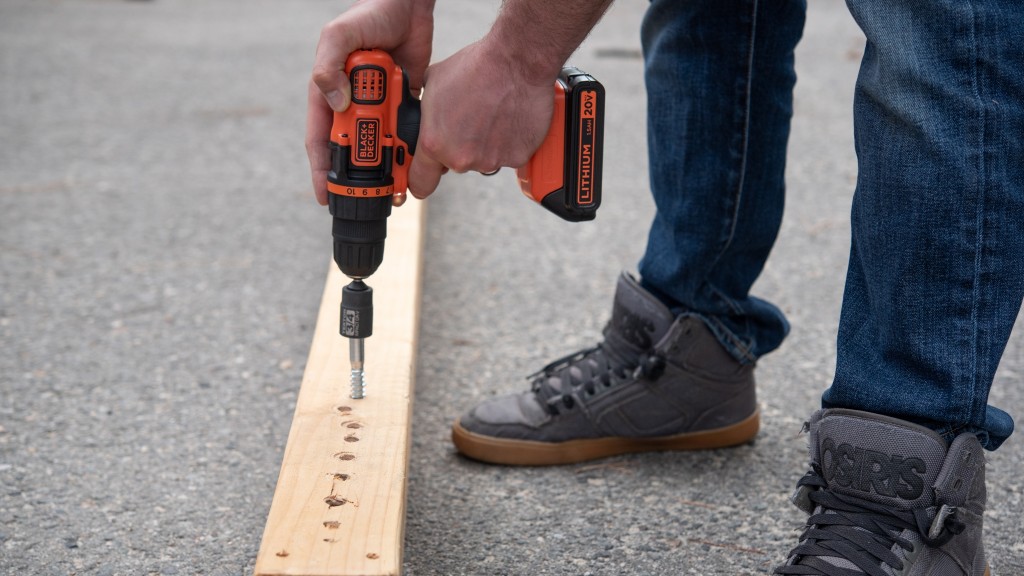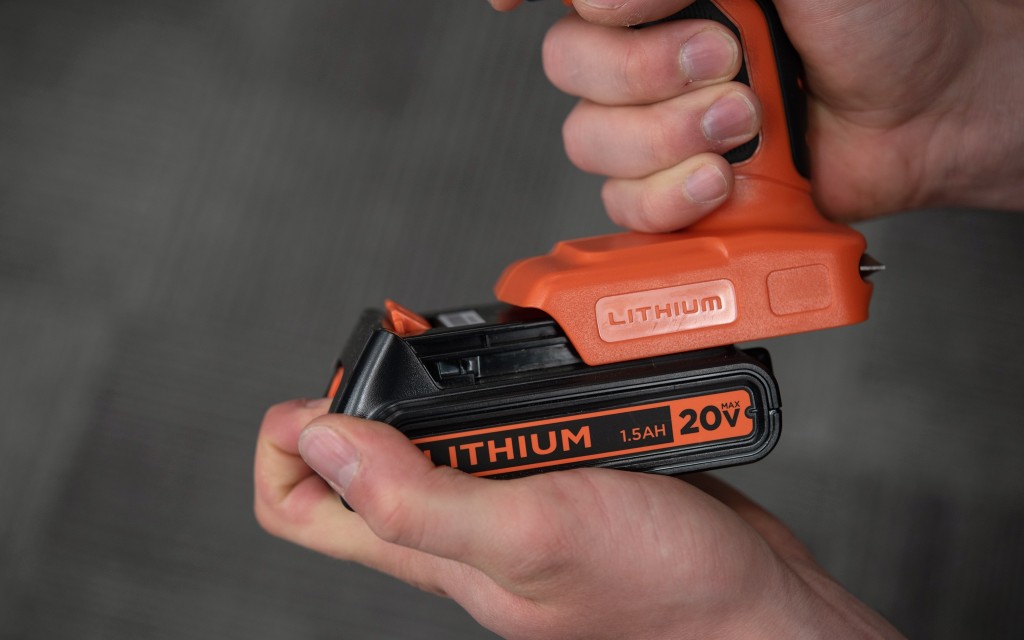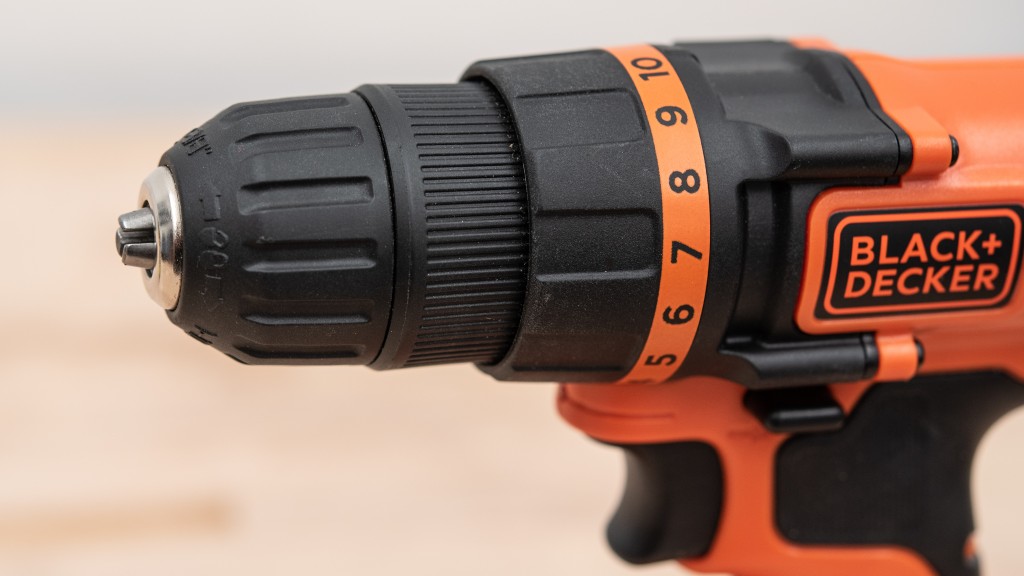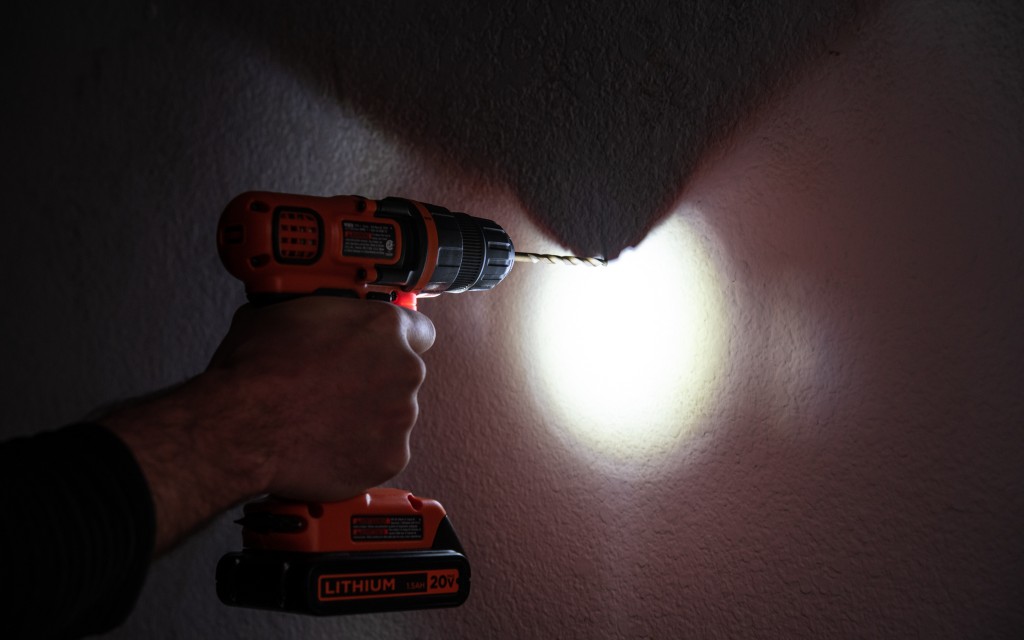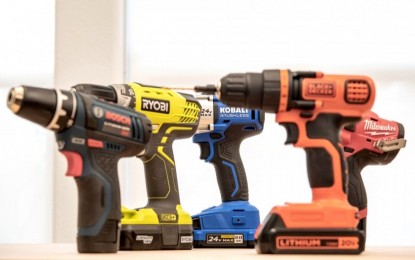Our Verdict
Compare to Similar Products
 This Product Black+Decker 20V Max Drill/Driver LDX120C | |||||
|---|---|---|---|---|---|
| Awards | A Great Drill for Tight Budgets | Best Bang for Your Buck | Best 12 Volt Option a Budget | ||
| Price | $87 List $59.90 at Amazon | $99 List $62.00 at Amazon | $100 List $65.00 at Amazon | $79 List $59.00 at Amazon | $139 List $99.00 at Amazon |
Overall Score  |
|||||
| Star Rating | |||||
| Bottom Line | This drill isn't great, but can speed up driving screws through prefabricated furniture at a low price | This model performs well across the board, and is especially worth the purchase if you already own the battery and charger | Limited driving performance kept this model from doing better overall | A great budget drill for a homeowners or DIYer and has more than enough power for moderate to light-duty tasks | Our favorite compact 12-volt drill when considering overall performance and price |
| Rating Categories | Black+Decker 20V Ma... | Ryobi ONE+ HP 18V B... | Ridgid 18V Brushles... | Craftsman V20 1/2-I... | Bosch 12V Max Drill... |
| Drilling (35%) | |||||
| Driving (35%) | |||||
| Battery Life (20%) | |||||
| Convenience (10%) | |||||
| Specs | Black+Decker 20V Ma... | Ryobi ONE+ HP 18V B... | Ridgid 18V Brushles... | Craftsman V20 1/2-I... | Bosch 12V Max Drill... |
| Five Inch Hole Saw Test | 90 seconds | 20 seconds | 22 seconds | 55 seconds | 70 seconds |
| Lag Screw Test | 3.19 in | 4.75 in | 4.25 in | 4.37 in | 3.87 in |
| Manufacturer Peak Torque | Not Listed | 750 in-lbs | 400 in-lbs | 280 in-lbs | 256 in-lbs |
| Measured Charge Time | 210 min | 63 min | 59 min | 58 min | 85 min |
| Measured Weight | 2.68 lbs | 3.77 lbs | 2.97 lbs | 3.44 lbs | 2.17 lbs |
| Measured Length | 7 in | 7.1875 in | 6.25 in | 8.25 in | 6.625 in |
| Measured Number of Settings | 10 | 24 | 23 | 23 | 20 |
| Manufacturer Stated RPM | 0 - 650 | Low: 0 - 500 High: 0 - 2100 |
Low: 0 - 400 High: 0 - 1750 |
Low: 0 - 450 High: 0 - 1500 |
Low: 0 - 350 High: 0 -1300 |
| Included Battery Pack(s) | 1.5 Ah | 2.0 Ah | Tested with 2.0 Ah | 1.3 Ah | 2.0 Ah |
| Max Chuck | 3/8 in | 1/2 in | 1/2 in | 1/2 in | 3/8 in |
| Battery Voltage | 20V | 18V | 18V | 20V | 12V |
| Drill Model Tested | LDX120C | PBLDD01 | R8701 | CMCD700 | PS31 |
| Box Model (Kit) Tested | LDX120C | PBLDD01K | Tested tool-only, no kit | CMCD700C1 | PS31-2A |
| Battery Indicator Location | N/A | Battery | Battery | Battery | Drill |
| LED Location | Above the trigger | Above the battery | Above the battery | Above the trigger | Above the trigger |
| Included Belt Clip | No | No | Yes | No | No |
Our Analysis and Test Results
Performance Comparison
Drilling
Starting, we tested and compared the drilling performance of each model, which is responsible for 35% of the LDX120C's and every other drill's total score. To do this, we drilled holes in wood boards with a 1" paddle bit, used a 5" hole saw in a solid core door, and drilled through a steel sheet with both ¼" and ½" twist drills. Regrettably, the LDX120C didn't do all that well.
The LDX120C did moderately well with the 5" hole saw in the solid door, drilling it to the full depth. However, it did take about 90 seconds to do this — the top tools only took 17 or so — and it protested and struggled the entire way. It started to smell quite horrific while drilling, and the air coming out of the exhaust vents was incredibly hot — hot enough to burn you. The entire drill body was also exceptionally warm afterward.
The LDX120C struggled to drill through the steel sheets. It made it through the 16 gauge sheet with the ¼" drill bit in about 4 seconds, though it struggled a bit. It struggled substantially with the ½" bit, but it eventually punched through the steel sheet after 12 seconds of drilling. However, it did protest and struggle quite a bit throughout.
Of our three drilling tests, the LDX120C had the hardest time with the 1" paddle bit.
We were drilling holes in a 2x12, and the Black+Decker was not happy in the slightest. It took a long time to drill the holes compared to the rest and was a bit of an overall struggle fest with this drill.
Driving
Our second set of evaluations is designed to test the driving performance of each drill when it came to installing fasteners, with this metric also accounting for 35% of the final score for each drill. We tested out the LDX120C with both wood screws and lag screws, awarding scores based on how quickly and easily it drove in these fasteners, as well as if it could set the heads properly. It again didn't do all that well compared to the burlier drills of the bunch.
This drill didn't do too bad with the normal wood screws — we used 3" long, #9 screws for this test to attach a pair of stacked 2x12s. It drives them into their full depth and sets the countersunk heads flush with the surface of the wood without struggling all that much. However, it definitely isn't the fastest at this, taking quite a bit more time than the top products.
Unfortunately, the ½" lag screw proved to be a bit too much for the LDX120C. We drilled a pilot hole through a 2x4 and into a 4x4 to drive the 5" long screw into it, but the LDX120C couldn't sink it to its full depth — no matter what we tried.
Battery Life
Moving beyond the drilling and driving performance of the Black+Decker LDX120C, we next rated and scored the battery life of this drill, as well as the time it takes to recharge. Additionally, we awarded some bonus points if there were extra batteries included. Altogether, these account for 20% of the Black+Decker's final score. The LDX120C delivered another somewhat poor set of results. We used a 1.5 Ah battery when assessing the battery life of this tool.
To test out the battery life of each drill, we started each one with a full battery, then alternated between drilling three 1" diameter holes with the spade bit and driving in 16 of the #9 screws until the tool died. The best drills made it through over ten cycles, while the Black+Decker didn't even make it through two. It made it through the first set but only drove in all the screws and drilled two holes in the second set before dying.
The LDX120C's 1.5 Ah battery also has one of the longest recharge times of the entire group, taking about 3.5 hours with the included charger. However, you can buy a fast charger separately if you really want to speed this up. This Black+Decker drill only includes a single battery, but you can purchase extra batteries.
Convenience
For the last 10% of the total score for each tool, we looked at all the little things that make them more convenient and easier to operate. In particular, we looked at the maximum bit size that the chuck could accept if there were different gears to maximize speed or torque, and how much each drill weighed, as well as if there is a belt clip, built-in light, battery indicator, and how easy it is to swap the batteries. The LDX120C did a bit better here, but it still wasn't awesome.
This drill lacks a belt clip and only has a single operating speed. It also has one of the smaller maximum chuck sizes, only able to hold something up to ⅜" of an inch instead of the standard ½".
The LDX120C also lacks a battery status meter, but it is pretty easy to install or remove the battery. The locking mechanism is a good balance between holding the battery securely and allowing it to be easily released. This drill also is relatively lightweight, weighing a little more than 2.5 pounds. It also does have an integrated work light, but it is a little on the dim side.
Should You Buy the LDX120C?
If you want a bare-bones tool that can handle light to moderate DIY projects without spending a ton of cash, then the Black+Decker 20V Max Drill/Driver LDX120C is a good choice. However, it has plenty of flaws and pales compared to the top products for drilling or driving performance. It's definitely on the underpowered side for DIY enthusiasts or professionals but is usually more than enough for the casual user. If you are only doing light-duty tasks, then the LDX120C is an exceptional value. There's no reason to spend more on a drill if you don't need more performance.
What Other Drill Should You Consider?
If you have DIY projects on your mind and hope to use your drill for various adventures, then the Black+Decker is likely to be disappointing. For about $20 more, the Craftsman V20 1/2-In. Drill/Driver Kit CMCD700C1 is a better performer and less frustrating to use. With better performance in all metrics, we believe spending a little more to get a lot more is worthwhile. See the best drills review to compare with other top models.





